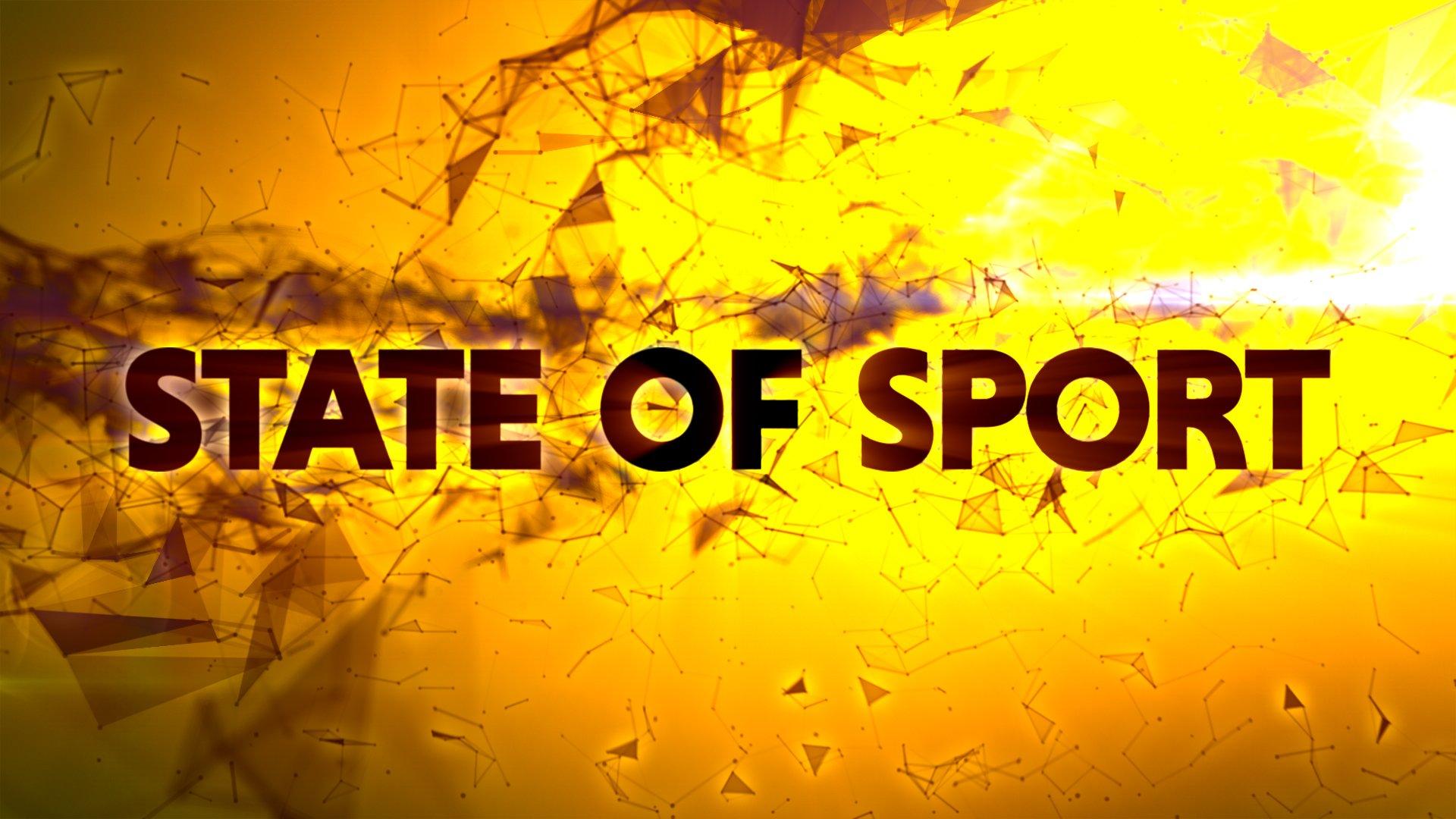Mental health challenges facing athletes after quitting sport
- Published
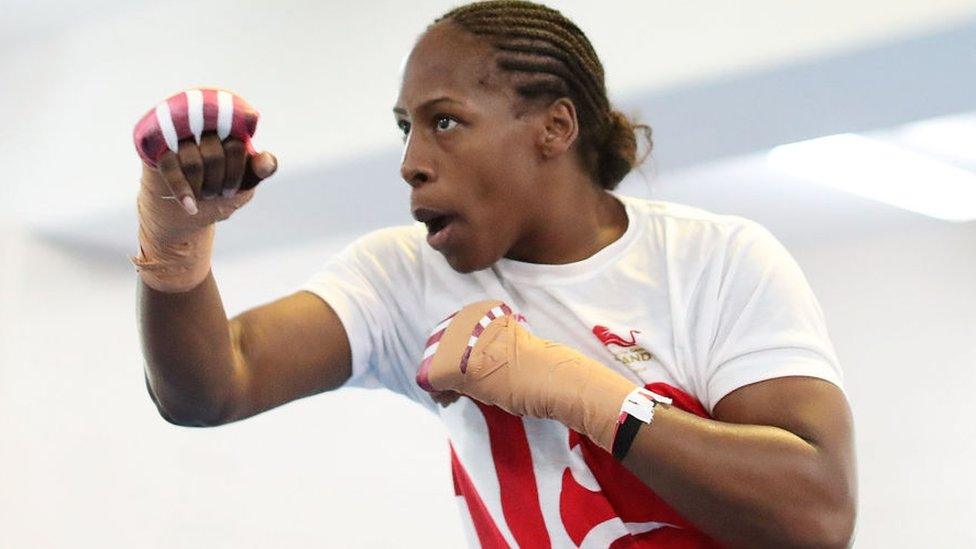
Natasha Gale during a Team England media opportunity ahead of the 2018 Gold Coast Commonwealth Games
Becoming a professional athlete is an ambition for many - but careers can often be short-lived and some struggle to adjust to life after sport.
BBC News spoke to former athletes about the impact of retirement on their lives.

'I felt a loss of identity'
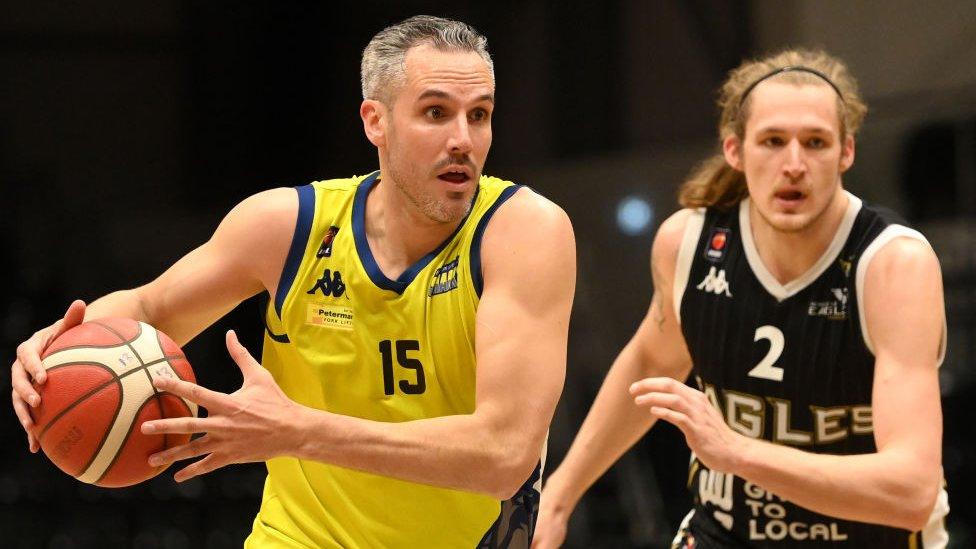
Mike Tuck said the whole structure of his life was "turned on its head"
"Sport is exciting," said Mike Tuck.
"There's an adrenaline rush to it. It's not your typical career."
A Canadian-British national, he played for the Sheffield Sharks basketball team for 13 seasons - 11 of them as captain.
He said he had a "fairytale career" and was not prepared for the impact of retirement at the age of 39.
"Some mornings, I didn't even want to get out of bed.
"The whole structure of my life had been flipped on its head."
He said as a professional athlete you had people telling you "where to be and at what time".
"And all of a sudden, that's all taken away."
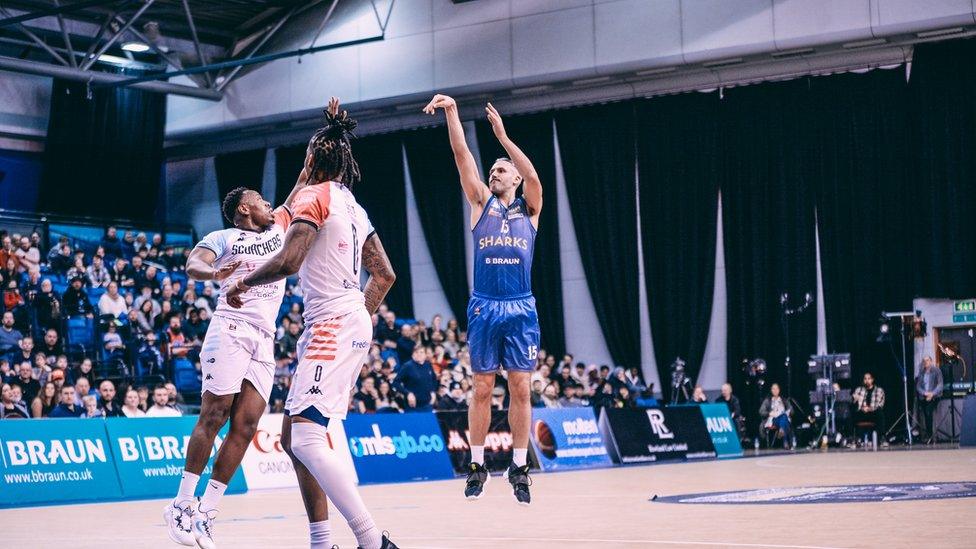
Mike Tuck is now a coach, marketing manager and pundit
Mike believes his self-worth was tied up with his identity as a professional athlete.
"For almost a year after, when people asked me what I did, I still said: 'I'm captain of the Sharks'."
Having initially ruled out coaching as a career, Mike started working as the head coach of the University of Sheffield's men's basketball team - and found he loved it.
He said being "open-minded" about future options was the key.
Today, he is a coach, marketing manager of Sheffield Sharks and a Sky Sports pundit.
"I'm happy, I'm in a good place and I'm excited for the future," he said.

'I really struggled'
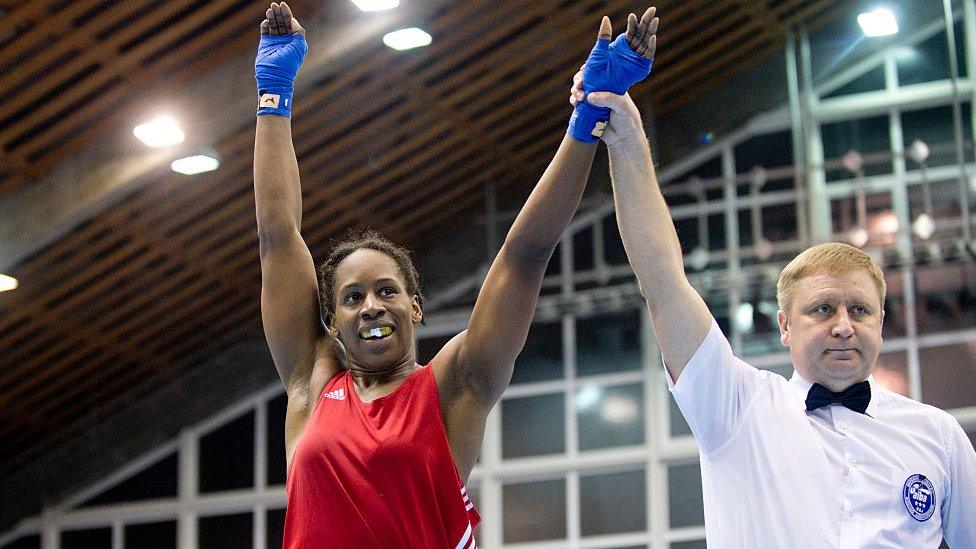
Natasha Gale left the boxing programme in 2019
Former European champion boxer Natasha Gale, 35, from Leeds, has chosen a very different route.
She made a clean break from sport after leaving the GB boxing programme in 2019.
"Literally, I was bedbound, my whole schedule was planned out and then I had like all this time and nothing to do," she recalls.
"It is like restarting your life again."
After she retired from boxing, she found it hard to find employment despite a degree in fitness.
"I'd gone from being a Team GB athlete, full-time athlete, podium athlete, European champion to working in a warehouse on night shifts.
"I really struggled. I was really depressed."
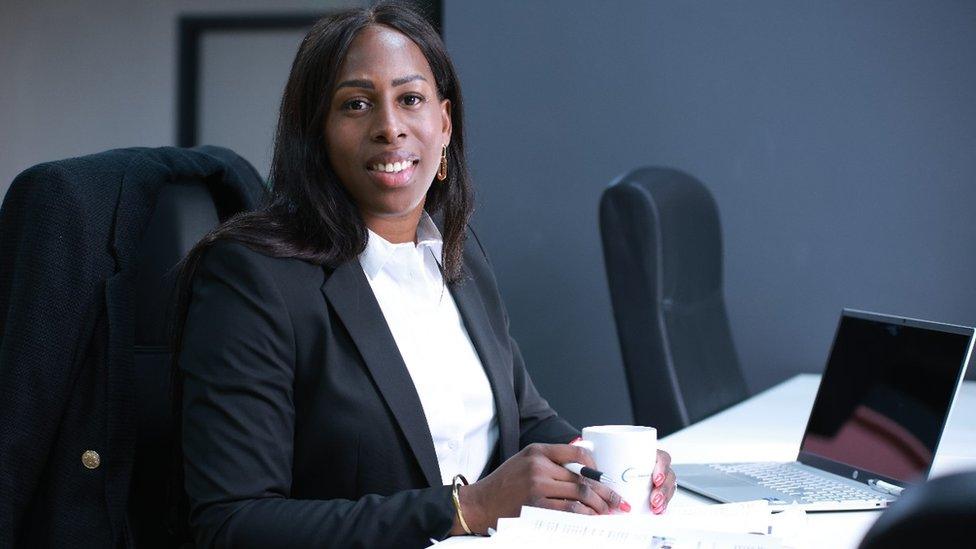
Natasha is now focused on family and growing her business
It was only when a friend offered her a job cleaning his rental apartments, that she realised she should set up her own cleaning firm.
She now employs six other people and spends weekends travelling in her motorhome with her partner and young son.
"I really am happy. If I'd have stayed in boxing longer I probably would have been injured, and I wouldn't have had my son either.
"Happiness is the most important thing."

'Give up altogether'
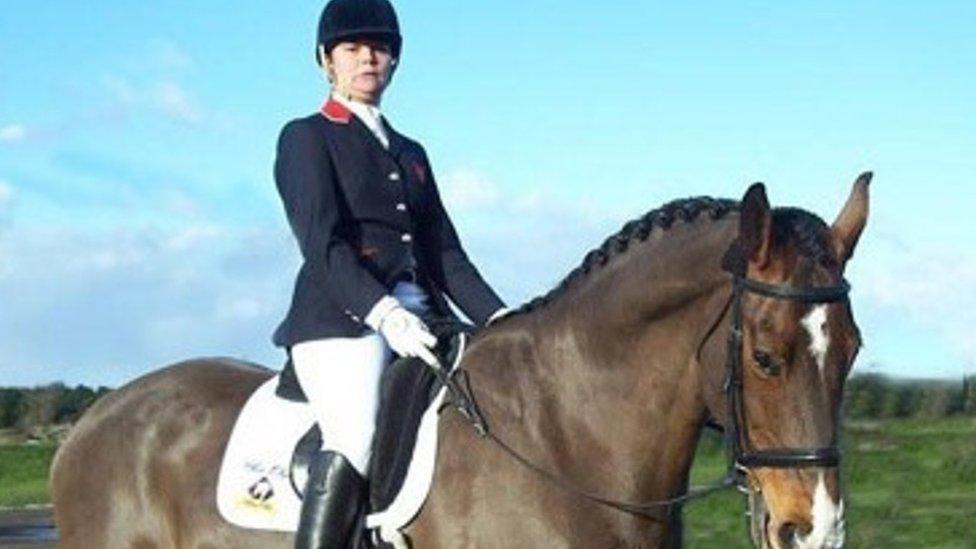
Emma Sheardown won medals in Para Dressage both internationally and nationally
For Para Dressage champion Emma Sheardown a combination of circumstances brought her competition career to a premature end.
The 38-year-old, from Grantham, Lincolnshire, suffered brain damage due to complications at birth and was later diagnosed with Quadraplegic Cerebral Palsy.
She began riding aged two and later discovered dressage.
Emma was selected for the World Class Para Dressage development squad and went on to represent the UK, winning medals both nationally and internationally.
Things changed after she was shortlisted for the 2012 London Paralympics.
"Sadly, the March before my dad passed away and, although I was eager to carry on, the selectors felt I wasn't in the right frame of mind," Emma said.
This disappointment was followed a year later by her horse retiring from competition.
"I got a young horse and was looking ahead towards Rio but sadly, after only having this new horse for 14 months, he had a tragic accident and we lost him."
Emma was loaned another horse but in 2015 she was given the news she was being taken off the squad.
"It was hard because I knew straight away that my coming off the squad would mean I would have to give up the sport altogether."
It also meant the loss of her horse and the loss squad funding.
"I just couldn't afford to carry on any more," she said.
"It was like everything had been taken away from me. I just didn't know what to do and that's when my depression set in."
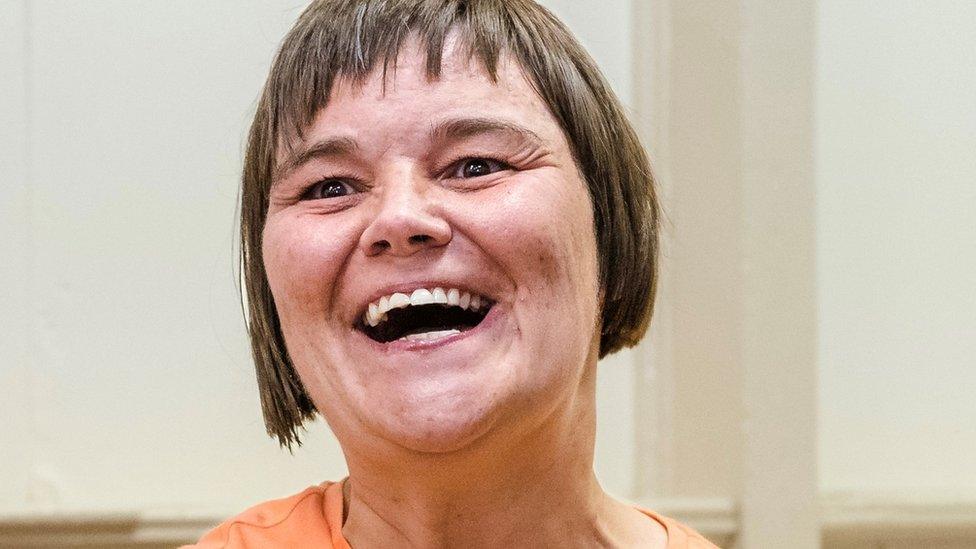
Emma Sheardown had found a new career in giving motivational speeches
Emma was initially unsure what to do, but recalled the funding she received had required her to give talks to groups and schools.
"I really enjoyed doing that so I decided to pursue a career in motivational speaking."
In addition to giving talks, Emma has also worked with groups on disability awareness and inclusion and has written a book about her life.
"If I am honest it is only in the last year that I have been hopeful for the future," she said.
After her experiences she believes sports people should have a back-up plan.
"I know it can be difficult when you're in full-time sport, but it is important to have another string to your bow so if your career does end you have got something to fall back on."

'Who am I?'
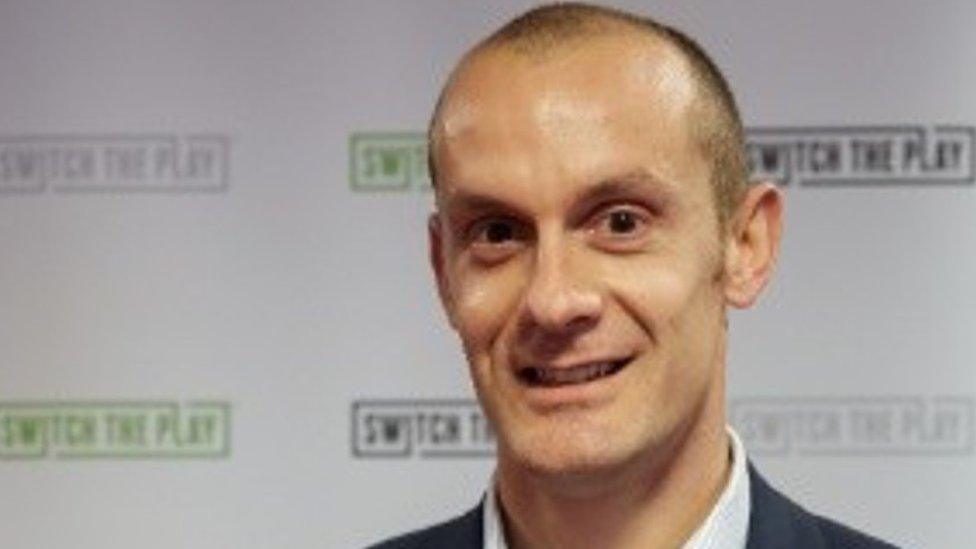
Rob Young said they want to help athletes succeed in sport and in life
Switch the Play is the only UK charity dedicated to supporting sportspeople to adapt to life outside sport.
Its co-founder and chief executive officer Rob Young MBE said a loss of identity could be a key factor in retirement.
"If your identity is tied to being a boxer and that is all you have ever known, and how people have known you, and you take the boxer away then people are having this crisis of 'Who am I?'"
Switch the Play worked with 1,100 athletes last year and aims to help them succeed in their chosen field in life outside sport.
"If you think about the way sports people work they tend to be very regimented individuals because they are very clear around a plan of what they need to do to perform their best," he said.
"So it is almost how you replicate that mindset to then think about building a plan of what you do next but recognising it shouldn't wait until you finish because it is very often too late."
His advice to athletes still competing is to think about what they could do in their downtime.
"What can you find your passion in?
"Use it to start to build your identity, build some skills and it gives you a positive distraction outside of sport that starts to lay the foundations towards the future."
He also said sport needed to do a better job at encouraging and supporting athletes to "develop themselves as human beings".
"That's about creating a positive environment where we are prioritising mental health and it is not performance or mental health.
"We can have mentally healthy sports people who can also achieve on the field of play."

- Attribution
- Published5 February 2018
